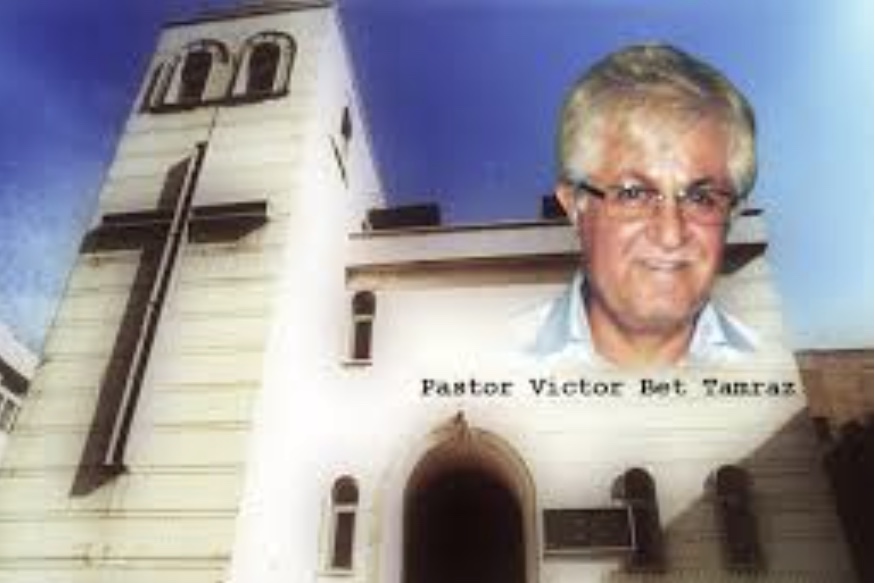November 7, 2025
Around the world today, millions of Christians are forced to make difficult choices in the face of persecution: to flee or to stay. This question has become increasingly urgent as religious freedom declines in many countries—from Nigeria to Iran to parts of the Middle East. At 21Wilberforce, we hear countless stories of courage, endurance, and faith that challenge us to rethink what it means to follow God’s call amid danger. The reflections below explore how Scripture and lived experience guide us in understanding when God calls believers to remain—and when He calls them to go.
After a church service at First Baptist Church in Marble Falls, Texas, where I preached on the topic of responding to persecution, a lady approached me and said, “I had been praying for God to remove those persecuted from their country. But after your sermon, I understand that I need to change my prayer and pray for protection for them in their own countries.”
The issue of escaping versus enduring is a long-standing question. I will present the answer up front: it all depends on what God is calling us to. There is no right or wrong; it is about God’s calling on the individual.
While in ministry in Lebanon, I met many who had fled their families, communities, and countries to seek shelter in Lebanon’s Christian community and areas. They fled danger because of the risk to their lives. I also heard of others who chose to stay and confront persecution. Some of those who sought shelter in Lebanon later decided to return home and courageously challenge court cases against them. God was calling them to play a role in their own communities. They trusted God’s protection and endeavored to heal broken relationships with their families.
Dr. Nabil Costa, CEO of Thimar and General Secretary of the Association of Evangelical Schools in Lebanon, said:
“We could all choose to travel and live abroad, but our calling is here. We love Lebanon, we love the Middle East… God placed us here for a reason. We have no right to walk away from that calling.”
Their courage mirrors the patterns we see throughout Scripture. We read in many passages that believers remained and faced persecution, even martyrdom. Paul chose to take his case to Caesar (Acts 25:11).
However, we also read in Scripture that sometimes the church scattered. Acts 8:1–4 describes the aftermath of Stephen’s martyrdom, highlighting the persecution of the early church in Jerusalem.
And leaving is never an easy decision.
A few years ago, in Geneva (photo), I facilitated a panel on persecution in Iran, where we hosted Victor Bet-Tamraz, an Iranian-Assyrian pastor who received a 10-year sentence in Iran that forced him out of his country.

Pastor Victor explained (Article 18 feature) the “extremely difficult” decision he and his wife Shamiram faced to leave:
“I didn’t want to leave Iran at all. If they gave me two years, three years in prison, I would have endured it. But they issued the verdict very late, and I am almost 66 years old now. You can imagine, if I would go to prison now, I would go in alive, but most likely I wouldn’t come out alive.”
Whether in Lebanon or in the United States, our comfort zones—our freedoms—can distort our understanding of the needs of the church, God’s mission and purposes, and His calling.
For our prayers to be better informed, we need to build relationships with those who are persecuted, and pray with them—not just for them. We also need to understand that there is no right or wrong answer.
In Acts, we read on two occasions where the disciples tried to stop Paul from going into danger – only one of which was successful.
Acts 21
12 When we heard this, we and the people there pleaded with Paul not to go up to Jerusalem.
13 Then Paul answered, “Why are you weeping and breaking my heart? I am ready not only to be bound, but also to die in Jerusalem for the name of the Lord Jesus.”
14 When he would not be dissuaded, we gave up and said, “The Lord’s will be done.”
Acts 19
29 Soon the whole city was in an uproar. The people seized Gaius and Aristarchus, Paul’s traveling companions from Macedonia, and all of them rushed into the theater together.
30 Paul wanted to appear before the crowd, but the disciples would not let him.
Let us pray for discernment regarding God’s calling for us all, embracing both the fleeing and the enduring among us.
Today, as persecution intensifies in many parts of the world, the global church is called to stand in solidarity—honoring both those who remain in dangerous places and those who are forced to leave. Each path can be a faithful response to God’s call. Our task is not to judge the choice, but to pray with wisdom, walk in empathy, and support the persecuted wherever they are.
May we echo the words of Acts 21:14: “The Lord’s will be done.”
Feature photo caption: Pastor Victor Bet Tamroz. Credit: Middle East Concern

